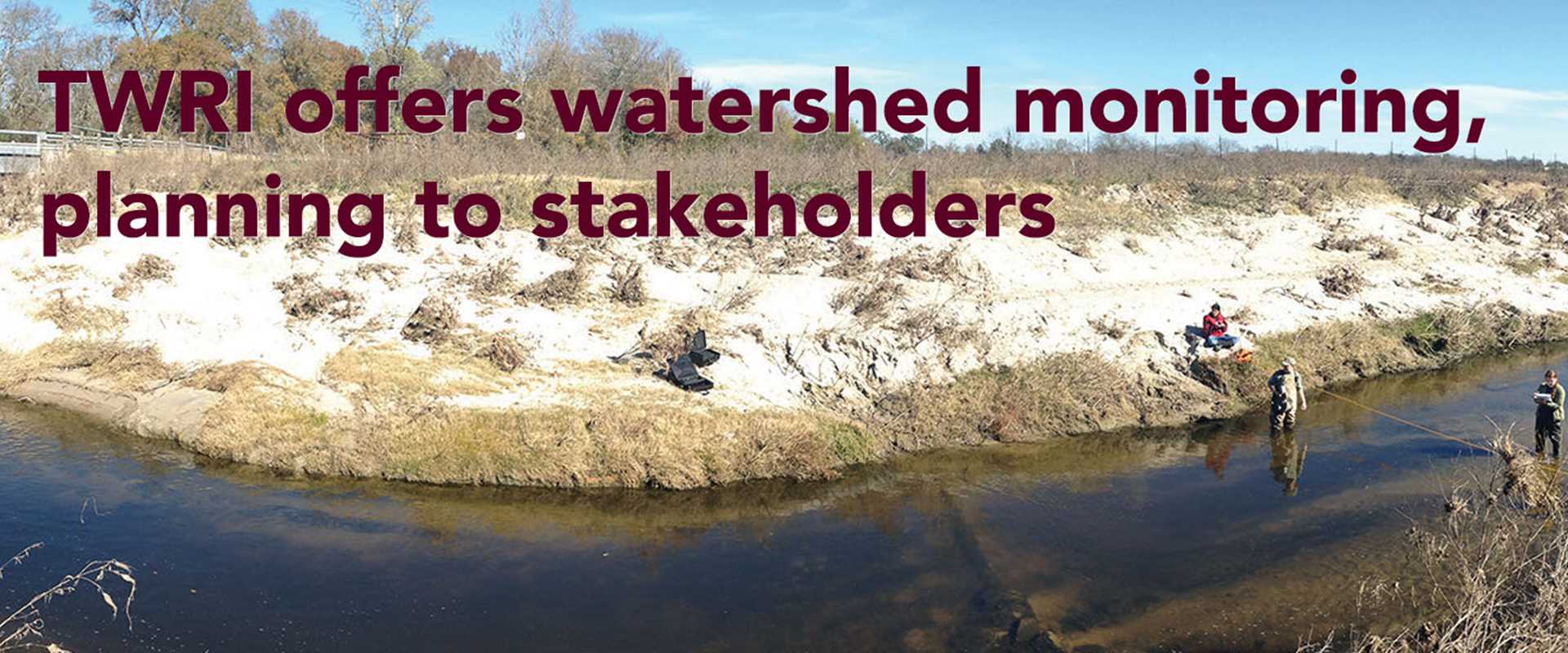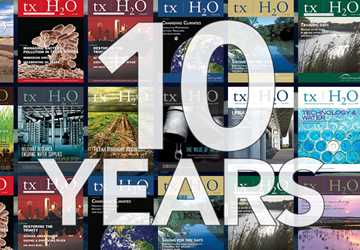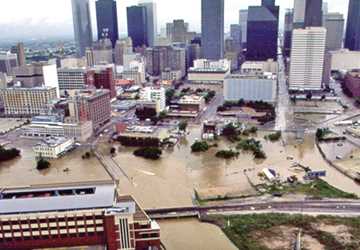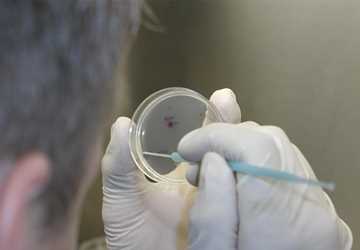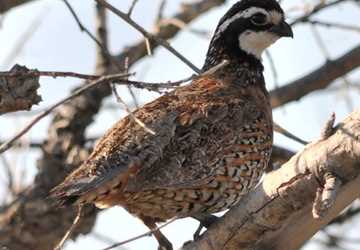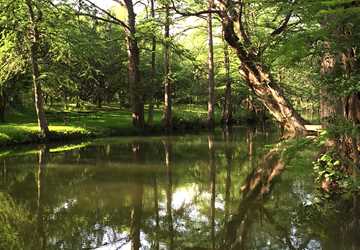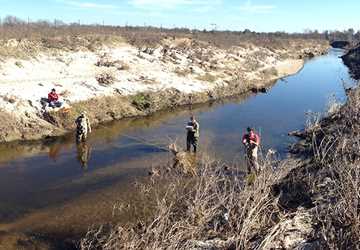With more than 440 water bodies impaired in Texas, understanding the potential causes and sources of those impairments is critical. After these issues are understood comes the work of restoring the water bodies.
The Texas Water Resources Institute (TWRI) has the staff and expertise to help with both. It includes a seven-member water team and graduate students, who are involved in watershed monitoring and watershed protection planning in a dozen watersheds throughout Texas.
“With a half-century of combined watershed-based planning experience, TWRI has the experience, expertise, organizational skills and knowledge to gather, collect and analyze water quality data and then guide stakeholders in developing science-based and stakeholder-supported plans necessary for restoring local water bodies,” said Dr. Kevin Wagner, TWRI associate director.
Lucas Gregory, TWRI project specialist, said the team collects water quality data, including stream flow, turbidity, dissolved oxygen, pH, conductivity, temperature, transparency and total depth, and then analyzes the data to develop a complete understanding of the water quality in the watershed. The team also incorporates the data into geographic information system (GIS)-based models of the watershed as well as sample water for E. coli or any other water quality constituent. (See A decade of solving water quality mysteries, page 10.)
“By collecting and analyzing water quality data and conducting watershed surveys, we can provide the science and data needed to begin restoration work in local water bodies,” he said.
Wagner agreed.
“Effective monitoring and watershed assessment provides communities and organizations with information needed to identify and better understand potential causes of local water quality impairments,” he said. “Having that information allows them to proceed with developing watershed-based plans to begin restoring the watershed.”
Wagner said the team is a statewide leader in coordinating and implementing locally driven watershed programs. The team has the capability to raise awareness through water quality education and outreach, assist in selecting appropriate management measures, draft restoration plans for local communities using feedback from local stakeholders, coordinate implementation of completed plans and help secure funding for planning and implementation.
Explore this Issue
Authors
As the former communications manager for TWRI, Kathy Wythe provided leadership for the institute's communications, including a magazine, newsletters, brochures, social media, media relations and special projects.

